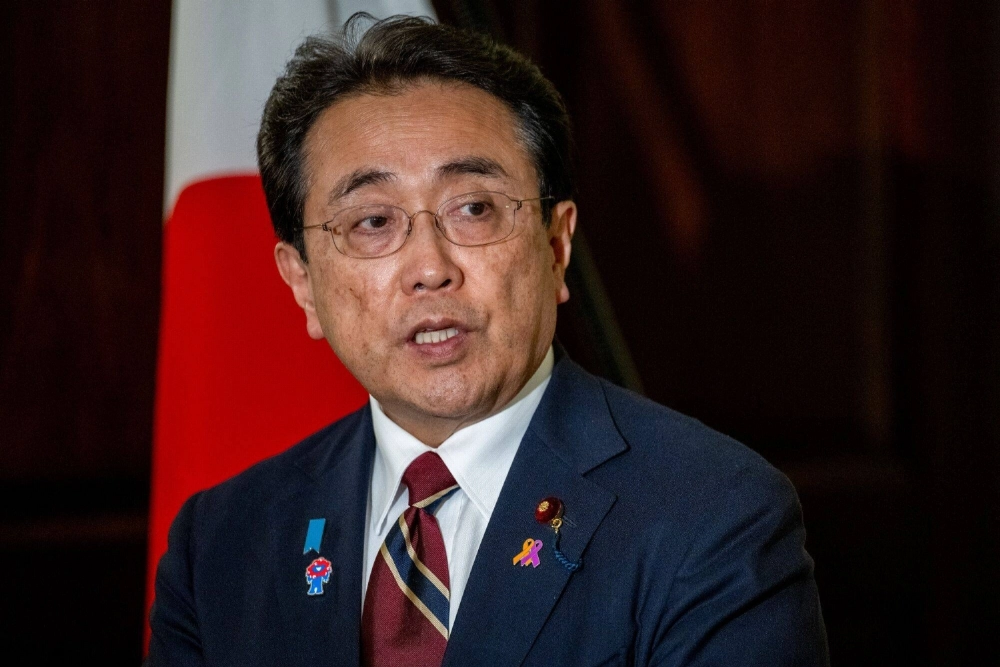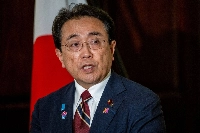Japan's broad trade agreement with the United States is "not settled," as Washington has not issued the expected presidential orders on tariffs for pharmaceuticals and semiconductors, Tokyo's top tariff negotiator said Saturday.
"While a presidential order has been issued concerning adjustments to general tariffs as well as automobile and auto parts tariffs, presidential orders for most-favored-nation status for pharmaceuticals and semiconductors have not been issued," Ryosei Akazawa told reporters after returning from talks in Washington.
"Therefore, it cannot be said that this is settled," said Akazawa, who is also Japan's minister for economic policy, adding that Tokyo would continue to press for the remaining orders.
Akazawa said that Japan would begin a full analysis of the economic impact of the U.S. auto tariff changes and how Japan's competitive trade conditions compare to other countries.
He also denied that U.S. President Donald Trump will have full discretion over how to allocate Japan's offer of $550 billion in investments and loans, which is part of the two countries' tariff agreement.
Trump will choose from projects proposed by a U.S. investment committee based on discussions by a Japan-U.S. consultation committee, Akazawa said.
Akazawa made the remarks after U.S. Commerce Secretary Howard Lutnick told CNBC on Friday that Trump has "complete discretion" over where the Japanese money will go.
Akazawa stressed that Japan will be involved in selecting projects that use the Japanese money.
During his recent U.S. trip, the Japanese and U.S. governments released a joint statement and a memorandum on Japanese investments in and loans to the United States. Trump then signed an executive order to implement the tariff deal with Japan, including lower reciprocal tariffs and auto levies.



















With your current subscription plan you can comment on stories. However, before writing your first comment, please create a display name in the Profile section of your subscriber account page.